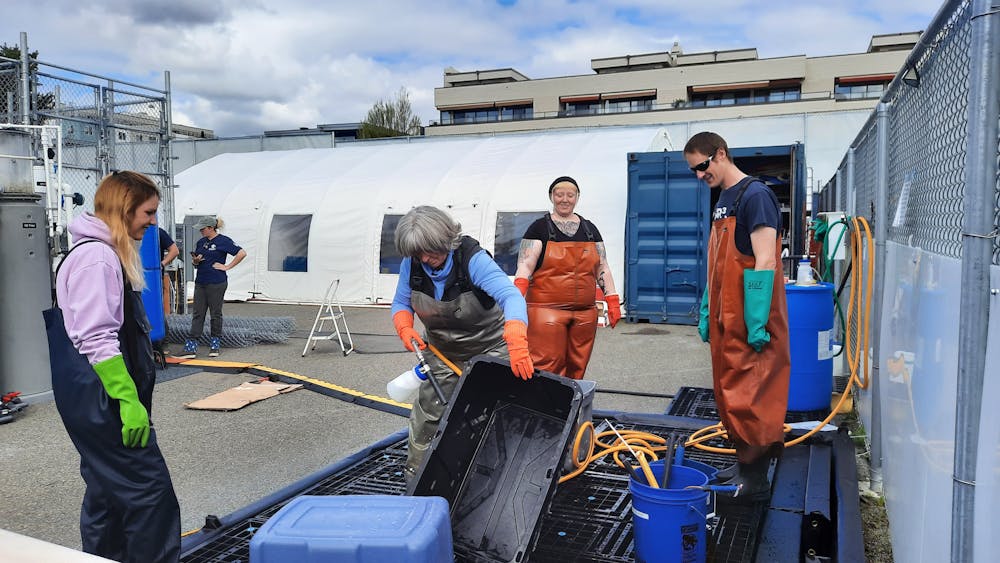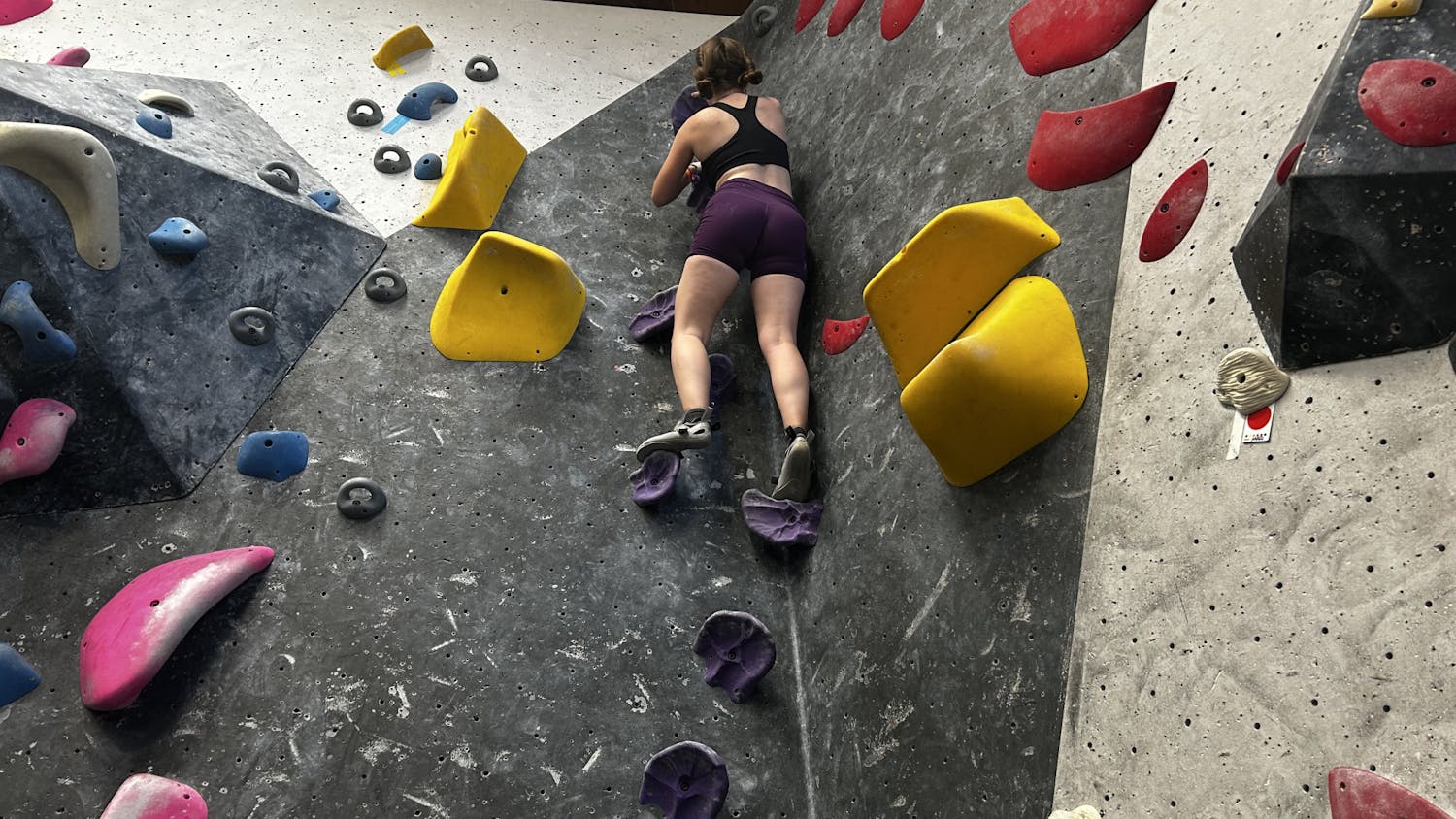A Zoom webinar on marine mammal rehabilitation in the Pacific Northwest was held on Jan. 18, 2024 through the Western Washington University Environmental Speakers Series. The speaker, Patrick Hutchins, is a Western alumnus and the community engagement coordinator of the Sealife Response, Rehabilitation and Research center, known as SR3, in Des Moines, Washington. Hutchins shared his experiences in the field.
This webinar allowed for Western students to hear about SR3’s real-life involvement in treating injured animals, how to get into the field and ways anyone, regardless of academic discipline, can help these creatures that live right outside many Bellingham residents' windows.
Harbor seal pups that are abandoned by their mothers make up a majority of what the rehabilitation center and their 100 plus volunteers encounter. These seal pups only spend about a month with their mothers, during which they rely on her limited milk. If any kind of stressor disrupts this process, the mother may abandon her pups on the shore, Hutchins said.
Venus was one of these abandoned seal pups. Her hopeful story was shared during the webinar.
When Venus was first brought in, like so many other pups, she was underweight and undergoing a transport that is stressful to many marine animals. After various health assessments and some creative tactics in what SR3 calls “fish school,” she eventually learned how to hunt.
After her release, Venus was spotted and identified by her hat tag — a marker placed with animal-safe glue to identify marine animals — with a new, thick layer of blubber, indicative of a healthy seal.
“One thing that [Hutchins] said that stood out to me was, ‘Living in reciprocity with the sea means taking responsibility for it.’ And that was something that I really connected with,” said Maya Crans, a webinar attendee. “We do need to take responsibility for it and give back to it in some way, whatever way we can.”
Venus and many others were able to be rehabilitated and re-released, but into an environment that is struggling. Pollution, noise from boats and coastlines, climate change and human interaction are among some of the major issues marine life faces, said Cindy Elliser, associate director of Western’s Salish Sea Institute. This is no simple thing to fix, as many facets of human life affect the ocean.
“We need to partner with each other in order to save this ecosystem. It's gonna take a lot of dedication, a lot of communication, a lot of hard work,” said Caleb Lee, a webinar attendee.
Daily habits are some of the main contributors of the problems facing the ocean environment, and could also be a collective solution to certain problems, Hutchins said. There are small, easy ways to prevent harm to these creatures, such as leashing pets.
“Leaving animals alone on the beach, that's the biggest thing,” Hutchins said. “Leashing dogs is also something we really need people to be better about on our beaches. ... We often see baby seals with dog bites.”
A decrease in consumerism also will help prevent disturbance to marine environments.
“We are increasing how many boats are going out. Our need to buy things from all over the place feeds into all that,” Elliser said. “Our consumer habits are very important in protecting marine mammal species.”
Much work remains to be done on everyone's part.
“I’ve always loved the Salish Sea and the inextricable parts of it,” Lee said. “Our marine life, everything from herring to salmon to seals to orcas, I think it's beautiful.”
A recording of the webinar is available in the Environmental Speaker Series Archive, which can be found here.
Mina Di Virgilio (she/her) is a campus life reporter for The Front this quarter. She is a third-year Spanish major and journalism/public relations minor. Outside of reporting on Western’s campus, Mina enjoys reading, drawing, and figure skating. You can reach her at minadi.thefront@gmail.com.






